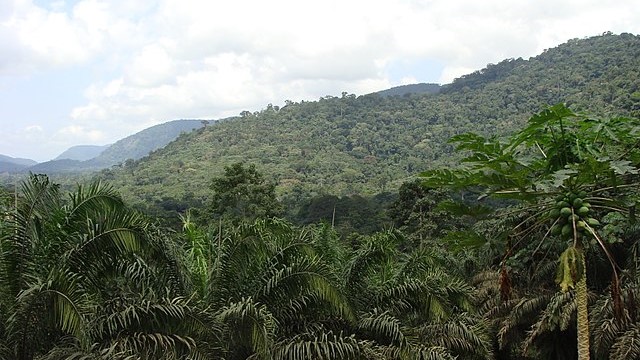Dense canopies of rainforest stretch across Monte Alén National Park, where the calls of hornbills and the rustle of primates animate the thick green silence. Along the shores of Bioko Island, sea turtles crawl ashore to lay their eggs on beaches that remain largely untouched by development. These are the landscapes that form the backbone of Equatorial Guinea’s emerging ecotourism industry—a sector increasingly seen as both a source of economic opportunity and a tool for conservation.
Nestled on the west coast of Central Africa, the country is one of the continent’s smallest, yet its geography is unusually varied. From volcanic highlands to lowland forests and mangrove-fringed coasts, Equatorial Guinea harbors ecosystems of exceptional richness. The government and local communities have begun to promote ecotourism not only as a way to attract visitors, but also as a strategy to safeguard fragile environments under pressure from logging, oil exploration, and urban expansion.
Monte Alén, often described as the country’s ecological jewel, provides a case in point. Covering more than 500,000 acres, the park is home to gorillas, chimpanzees, forest elephants, and hundreds of bird species. Guided treks led by local conservationists introduce visitors to these rare habitats while ensuring that tourism remains carefully managed. On Bioko Island, conservation groups run seasonal programs where travelers can observe nesting sea turtles, a vital population threatened across much of West Africa.
The promise of ecotourism lies not only in the preservation of wildlife, but in the livelihoods it supports. Eco-lodges, small-scale guesthouses, and community-run tours channel income directly to residents who might otherwise depend on extractive industries. Local guides, trained in both ecology and cultural heritage, provide travelers with a perspective rooted in lived experience. In villages surrounding parks and reserves, community projects link tourism to education and health initiatives, reinforcing the notion that environmental protection and social development can move hand in hand.
Equatorial Guinea’s cultural dimension adds further depth to these experiences. Visitors attending village festivals or workshops often encounter traditional Fang music, Bubi dance, and crafts that have been passed down through generations. Such exchanges underscore the interconnectedness of ecological and cultural preservation. Sustainable travel in the country has come to mean not just protecting forests and wildlife, but also valuing the human traditions that shape life within them.
Challenges remain. The country’s oil-driven economy has long overshadowed environmental priorities, and infrastructure for tourism is still limited. Yet conservationists argue that the gradual growth of ecotourism signals a shift in perspective. By framing biodiversity as an economic asset and not just a heritage to be preserved, the nation is finding new incentives to safeguard its forests, coastlines, and wildlife.
Equatorial Guinea’s ecotourism movement is still young, but its momentum is evident. What is unfolding is less a mass-tourism venture than a carefully curated model, one where small groups, guided walks, and community projects replace resort complexes and tour buses. In a region where natural wealth is often equated with resource extraction, this represents a quiet but significant reimagining of what development might look like.
Sources
- United Nations Environment Programme (UNEP), Biodiversity in Central Africa: Regional Report
- Conservation International, “Protecting Biodiversity on Bioko Island”
- World Wildlife Fund (WWF), Monte Alén National Park: Conservation Priorities in Central Africa
- BBC Africa, “Equatorial Guinea’s Natural Heritage and the Rise of Ecotourism”

